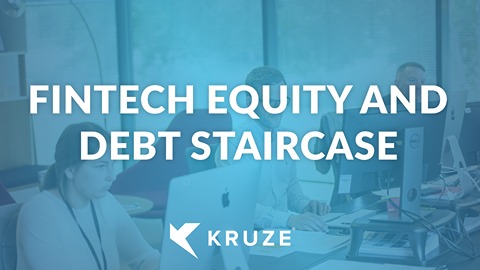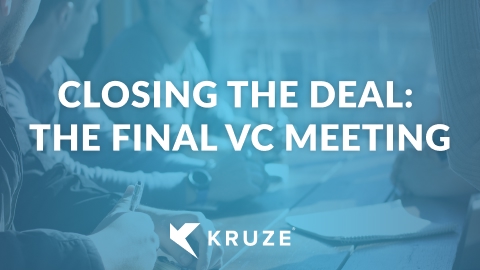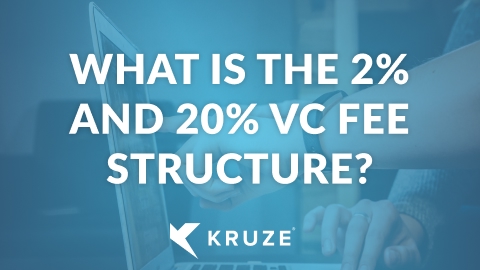Kruze Consulting’s clients raise between $3B and $4B per year in funding, and Kruze knows startup finance.
Startup finance goes beyond venture capital, and today’s early-stage companies are accessing financing through venture debt lenders, seed and pre-seed funds, individual angel investors, revenue based and SaaS loans and more.
And the ultimate source of financing for startups is cash from paying customers!
Kruze Knows Startup Finance
Kruze has worked with companies that have raised over $15 billion in VC and seed funding. Kruze’s founder is a CPA who worked at Deloitte Tax and was the Controller of a 120+ FTE startup. Our COO Scott Orn is a Kellogg MBA, former VC Partner at Lighthouse Capital Partners. Our head of Finance, Planning and Analysis is a former venture capitalist and startup operating executive who has helped companies raise hundreds of millions in startup financing.
How are Early-Stage Companies Financed?
In the United States, the most talked about form of early-stage financing is Venture Capital. And for good reason - according to the National Association of Venture Capitalists, in 2020 10,862 startups took in $164 billion in VC funding, the third year in a row that over $130 billion has been invested.
However, VC funding is only part of the picture - and often isn’t the right means to get capital for many small companies. And even startups that go on to raise large amounts of VC dollars often start with other types of capital, from founder funding to cash from actual customers to angel investments.
Typical Sources of Startup Financing
- Self-financing: founders using cash that they’ve saved, cashing in their 401(k), even using their credit card (which can be pretty dangerous)
- Traditional bank loans: not a source of capital that we see very often for the Silicon Valley-style startup, but a more typical small business may be able to access a loan from a traditional bank if the founder has a solid business plan and a good relationship with the bank (see our top startup bank list here)
- Bootstrapping: using revenue from paying customers to finance the business - hard to do if you are building a technology company; sometimes a founder will start with a service offering and try to use that to finance a pivot into a tech offering. However, this is a dangerous strategy in that providing a service can be very, very time consuming and making the switch from services to a software or other solution can be difficult
- Friends & Family: people who love you and your idea !
- Advice: use a standard convertible note or a safe note - get it in writing, so that there is no confusion about what the investors are getting
- Size: Friends & Family Investment: $25k to millions of dollars; totally depends on your network
- Angel Funding
- Professional/experienced “hobbyist” angel investors usually invest at a higher valuation that friends and family, but also require legit paperwork and some accounting/governance
- About $5M valuation to $10M as of mid-2021 (note this is historically very high!)
- Size: Anywhere from $250k to $2M
- Revenue-Based Financing
- Some lightly funded or “pre-VC” startups that have significant recurring revenue take out loans based on their recurring revenue
- Called “revenue-based financing,” this type of lending is gaining popularity
- Pre-Seed & Seed Financing
- There are legitimate funds that focus on the pre-seed and seed rounds; they Invest in startups and collect management fees and carry out of their funds
- Typical securities are currently SAFEs, Convertible Notes and Price Rounds with preferred stock
- SIze:
- Pre-seed Investment: $500k-$1M
- Seed Investment: $3M investment, going up to $10M
- Series A Financing
- There are 20-30 highly-sought after, well known Series A Funds and hundreds of lesser known funds
- Size: Series A Investments: $7-10M
- Type of security is always preferred stock, so these are “priced” rounds where the company gets a legit valuation
- Series B Funding
- Size: Series B Investments: $15-50M
- Preferred stock, generally the same security as the Series A financing but at a higher price per share (thus the company’s valuation goes up
- Venture Debt
- Specialized form of debt financing for startups; this is a real loan that must be eventually repaid; if the company goes under these investors usually get paid back first from whatever is available at liquidation
- Size: $5M to $50M
- Sources include specialized banks and funds
- We’ve written extensively about venture debt and typical venture debt terms
- Series C Financing (and beyond)
- Sizes vary from $20M to hundreds of millions
- Players like Tiger Global and Softbank are moving aggressively into this form of later stage startup finance, increasing round sizes and dramatically decreasing the amount of due diligence required to raise later stage capital
Types of Venture Capital Financing for Startups
VCs typically use specific types of securities to invest in early-stage companies. These types of financing securities are usually preferred stock, SAFEs and Convertible Debt.
Preferred Stock - Used when Pricing a Startup’s Round
Preferred stock or preferred equity is a special type of equity used by VCs because it comes with a large number of specialized rights and privileges that make it superior to the common stock that founders and stock option-holders (i.e. employees) get. These rights include a liquidation preference, which means the venture capitalists get their money back before common shareholders. Plus they usually have the right to block major decisions like exits, fund raises, debt, etc by voting as a class.
Convertible Notes for Startups Financing
Convertible notes, usually called “converts,” are one of the top forms of financing used by professional investors. Their popularity has decreased after the creation of SAFEs, but converts are still one of the most common types of investments raised by startups at the seed rounds, as well in extension rounds. Learn more about convertible notes.
SAFEs for Startup Financing
SAFE notes (“simple agreement for future equity”) is a very simplified agreement that mimics a convertible note. It was designed by Y-Combinator to make easier to finance a startup, with less paperwork and lower legal costs. Of course, over time, SAFEs have become more complicated, so what used to be a simple, one or two page documents are now a multi-page legal agreement. However, there are advantages of SAFES - they are very fast vs. most convertible notes to paper, don’t have interest or a maturity date. Big things to watch out for are conversion valuation caps, “the Cap,” and pre-or post money on the conversion discount and cap. This can make modeling the cap table pretty difficult.
Venture Capital Scout Funds
A venture capital (VC) scout fund is a type of fund that is focused on identifying and evaluating early-stage investment opportunities for a larger venture capital firm. The scout fund acts as a “scout” for the VC firm, searching for promising startups and bringing them to the attention of the VC firm for potential investment. The scout fund typically receives a percentage of the profits from any investments made by the VC firm as a result of the scout’s efforts. Scout funds are often used by VC firms to help them identify and evaluate investment opportunities in a particular industry or geographic region.















